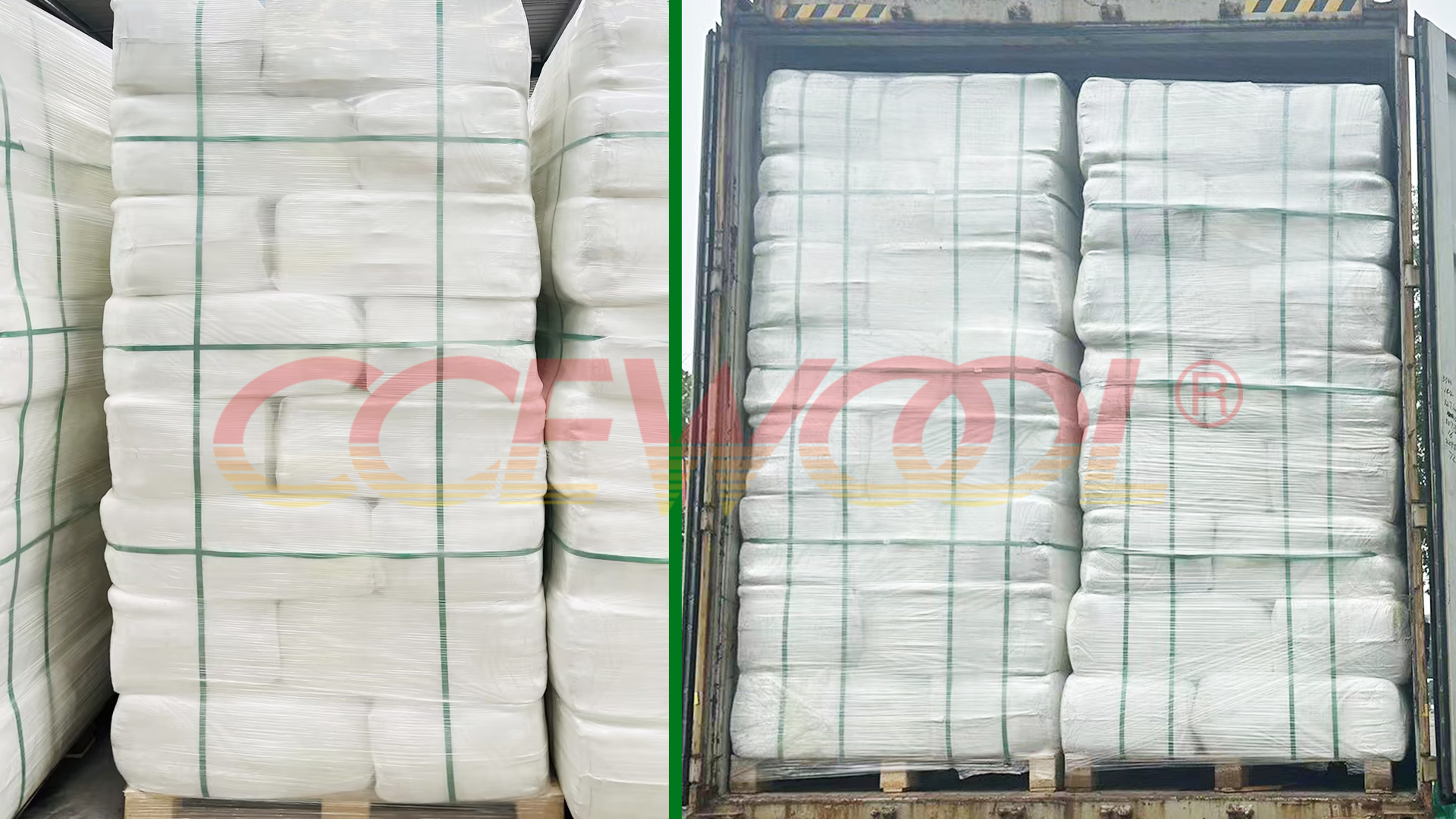RCF Bulk – CCEWOOL®
- 23 Jun, 2025
- Insight

In high-temperature equipment insulation and gap-filling applications, ceramic fiber bulk insulation (RCF Bulk) is widely used due to its moldability and thermal stability. However, in real-world operations, many companies struggle with material loss during shipping, complex storage management, and inconsistent batch quality. CCEWOOL®, as a professional supplier of ceramic fiber materials, has optimized the entire process—from packaging to performance—to deliver truly industrial-grade, high-quality RCF Bulk.
Precise Packaging for Safer Transport
CCEWOOL® RCF Bulk comes vacuum-sealed in plastic bags and secured on pallets, which not only protects product quality but also optimizes space utilization. Each bag weighs a compact 20 kg and is moisture-proof. The packaging design:
Includes individual labeling for batch tracking
Offers excellent compression and tear resistance during shipping to avoid damage
Maintains its form and resists moisture over long-term storage, ensuring smooth on-site use
Ready to Use—Improved On-Site Efficiency
Unlike bulk loose materials that require unbagging and screening, CCEWOOL® RCF Bulk is “open-and-use.” It’s ideal for various applications—industrial furnace expansion joint filling, furnace lining repairs, and filling irregular structural gaps. Its flexibility allows it to be used alongside molding or prefabricated technologies for standardized, cleaner installations.
UK Customer
Cooperation duration: 5 years
Product ordered: CCEWOOL® Ceramic Wool Fiber (RCF Bulk)
Product size: 20 kg/bag
Over the past five years, our UK customer has reordered more than 30 batches of CCEWOOL® RCF Bulk. They report:
"From shipping, appearance at delivery, ease of opening the bag, insulation performance to long-term durability—CCEWOOL® has consistently delivered. The RCF Bulk is perfectly balanced in hardness and softness, clean, and highly fillable—no need for screening. We increase our order every year because it's just that reliable."



